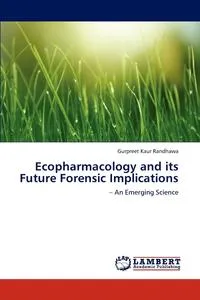Ecopharmacology and its Future Forensic Implications
Автор: Gurpreet Kaur Randhawa
Переплёт: Мягкая обложка
📘 Ecopharmacology is a science dealing with effects of active pharmaceutical compounds and their metabolites on ecosystem in negative way. Pharmaceuticals find their way into environment either through excretion after human use, agriculture and veterinary use, through disposal of expired medicine and as manufacturing waste. Some pharmaceuticals are not easily biodegradable, persist in environment and their accumulation in environment pose risk to non targeted organisms, animals and may be humans. They are usually found in traces (nanograms to micrograms/litre) in drinking water; still they are known to affect aquatic life, vertebrates and invertebrates. They can travel up in food chain and can affect humans, usually indirectly. Antibiotics in sub therapeutic doses used as 'growth promoters' in poultry have resulted in MDR strains of human pathogenic organisms. Remedial measures of pharmaceuticals to decrease their impact on environment will also be discussed. As pharmaceuticals from environmental sources are found in traces in biological fluid, death from them seems to be suspicious due to non-lethal doses, which is a debatable subject in absence of other lucid causes of death.
Мнения
